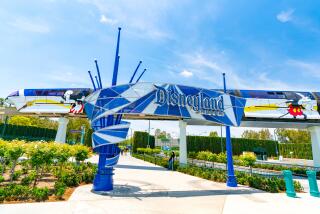Seen as Move to Regain Ground From Visa : MasterCard to Increase Its Fees for Merchants
- Share via
MasterCard is raising the processing fee that merchants pay for credit card transactions, in a move that will put more money in the pockets of banks and increase merchant costs.
MasterCard said the 29% increase, effective Jan. 1, is the result of increases in credit losses and interest rates. But some industry observers believe that the action is an attempt to regain ground lost to Visa International at the expense of merchants and ultimately consumers.
“These increased costs are going to be passed along to merchants, who will have to pass them along to consumers, who will end up paying the bill,” said H. Spencer Nilson, publisher of a Santa Monica-based newsletter on the credit card industry. “MasterCard hopes to get preferential treatment for their card and make consumers pay for it.”
Each time a consumer makes a purchase using a credit card, the merchant pays a percentage of the price to the banks and processors handling the cards. The amount averages 2.2% for Visa and MasterCard.
The biggest portion of the 2.2% is called an interchange fee, which is paid to the bank that issued the card. The interchange fee is what MasterCard decided to increase. Visa says it will keep the same fee for 1989.
MasterCard’s fee on a $70 transaction will rise to $1.09 from 84 cents on a purchase approved through electronic terminals, according to Nilson. The fee on a standard transaction, which is not checked electronically, is slightly higher because of an increased risk of fraud or loss.
Visa will continue to charge 90 cents for an electronic transaction, according to Nilson. But Visa recently altered its regulations to make it more difficult for merchants to qualify for the lower electronic rate, he said.
Both Visa, which is in San Francisco, and New York-based MasterCard are owned by associations of banks, and most banks offer both cards to customers. Five years ago, MasterCard had 60% of the market and Visa had 40%. Today the positions are reversed and MasterCard has been fighting to regain its lost share.
According to Nilson, the MasterCard increase will generate $212 million a year in fees for the banks. He and other industry observers believe that the increase is an attempt by MasterCard to provide an incentive for banks to favor it over Visa.
MasterCard officials denied that speculation, saying the increase reflects a 17% increase in losses through bad credit last year and other factors, not an attempt to outmaneuver Visa.
“I would tell you very candidly that it (the increase) really was not a major strategic consideration,” said Alex W. Hart, head of consumer banking at First Interstate Bancorp in Los Angeles and a member of the MasterCard board of directors.
Hart said he did not expect merchants to stop honoring MasterCard because of the higher fees, and he said he would be surprised if consumers see an impact.
Nilson, however, said merchants will either have to stop honoring MasterCard or pass the increased fees along to consumers.
“Most merchants will accept MasterCard and then build the increase into their prices and get it back,” he predicted.
MasterCard lost $5 million in 1987, and Nilson believes that the association will try to get the additional interchange fees from banks in terms of higher membership costs. A MasterCard spokesman, Richard A. Woods, said the increase is solely to help banks cover higher costs.
Nilson also said some major retailers have threatened to drop MasterCard or at least promote Visa instead. He said some retailers, including K mart and Walmart, may add Sears Discover Card as an alternative to MasterCard.
More to Read
Inside the business of entertainment
The Wide Shot brings you news, analysis and insights on everything from streaming wars to production — and what it all means for the future.
You may occasionally receive promotional content from the Los Angeles Times.










